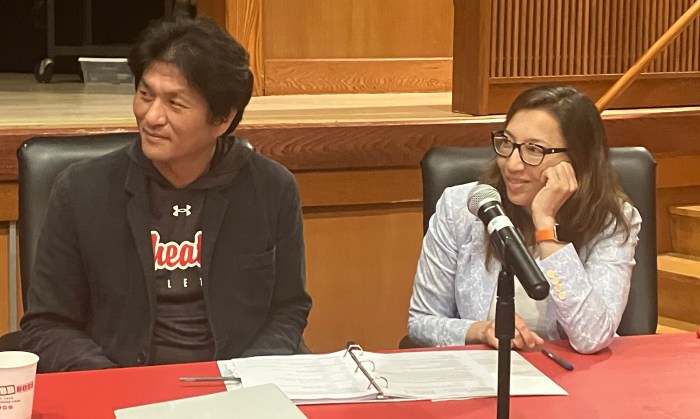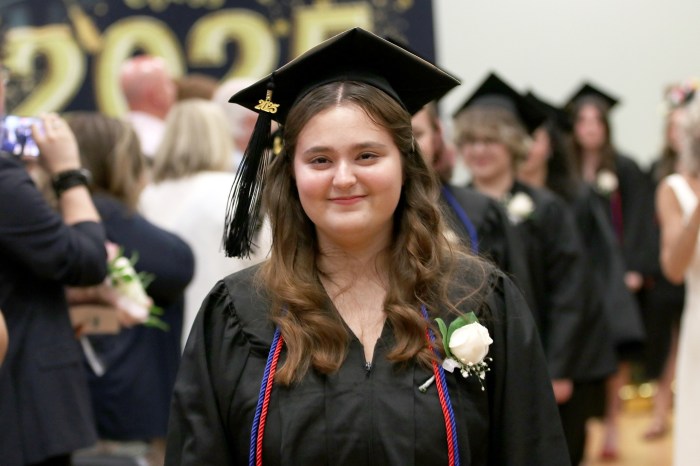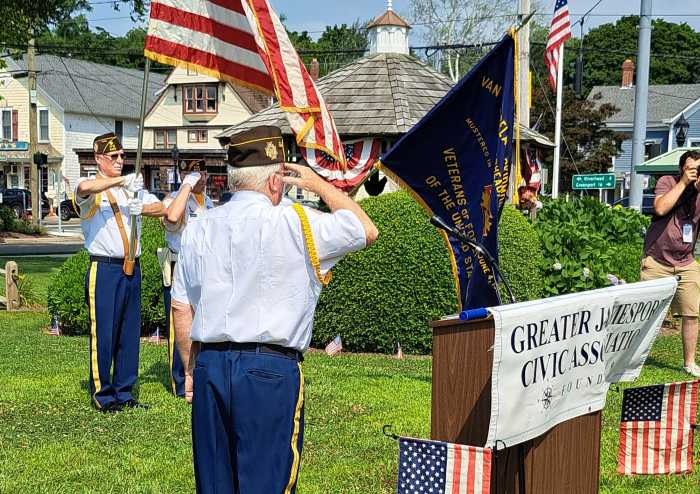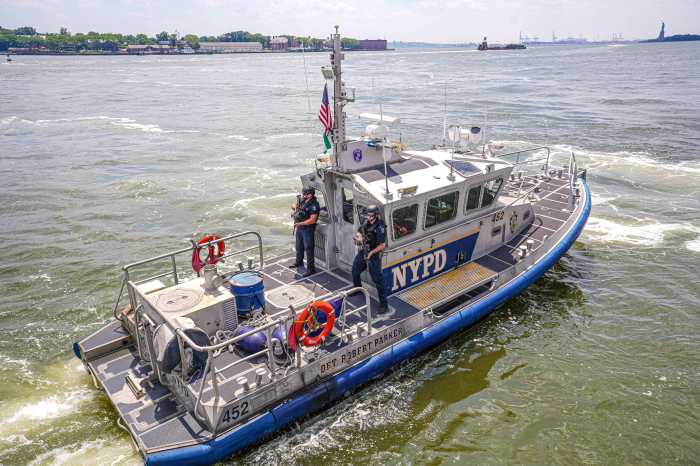Holocaust survivor Stanley Ronell gave a presentation to Schreiber High School’s 10th-grade global studies II students on Wednesday, March 23, in the Schreiber library. The event was organized by Schreiber Social Studies Department Chair Lawrence Schultz. Ronell has been lecturing on his experiences during World War II and has told his story to more than 15,000 students. He’s spoken at secular and religious schools, to students and adults.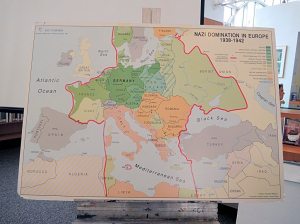
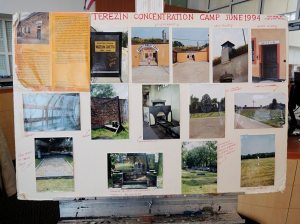
“My mission is to teach,” said Ronell. “People need to remember what happened. Our hope is in this younger generation that this horrific event will never happen again. I want the younger generation to remember, and never forget, the six-million Jews that perished at the hands of the Nazis.”
An important part of Ronell’s story are those who helped hide Jewish people from the Nazis. Ronell called these people the “righteous among the nations,” because they stood up and helped strangers at their own peril. Many died doing it. Ronell urged the students to not be “bystanders.” It’s evident from history that without the silent majority of bystanders in Nazi Germany, the Holocaust could never have happened.
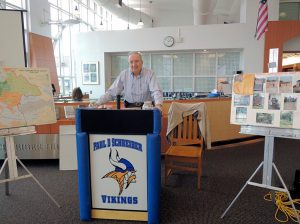
Ronell gave a historical overview and then told his own story. Ronell was born in Krakow, Poland. He and his mother were saved by being hidden in Poland and Hungary by the righteous throughout the war. His father was killed early in the war and most of his parents’ families died in various concentration camps. He witnessed, as a child, people being led into a building that was then purposely set on fire. He witnessed elderly people being shot in the street by Nazi storm troopers.
Ronell described in detail how he and his mother hid in different houses, in different countries, throughout the war. His mother sometimes could hide in plain sight with a false identity because she looked, as Ronell put it, “Aryan.” He was sometimes hidden separately from her.
Ronell said, “The experience of speaking to students is rewarding because to hear from a witness is to become a witness to history. Eisenhower came to a concentration camp at the end of the war to witness it for himself. He knew that people would try to deny what happened and Eisenhower wanted to see it for himself and be a first-hand witness.”
After the war, Ronell and his mother first went to Canada in 1946, and then came to the U.S. in 1951 when their visas came through. He described the five-year wait for a U.S. visa and all the criteria that needed to be met. He and his mother also decided to change their name to avoid the anti-Semitism that existed. Ronell has an MBA and was a marketing professional during his career. Ronell has lived in Port for decades and his two children went through Port schools.
The students at the presentation listened respectfully as Ronell told his story. Ronell warned the students that when they enter college they will be faced with “an epidemic of deniers of the Holocaust on college campuses.” Ronell urged these young students to not be bystanders and to remember the past so it cannot be repeated.





